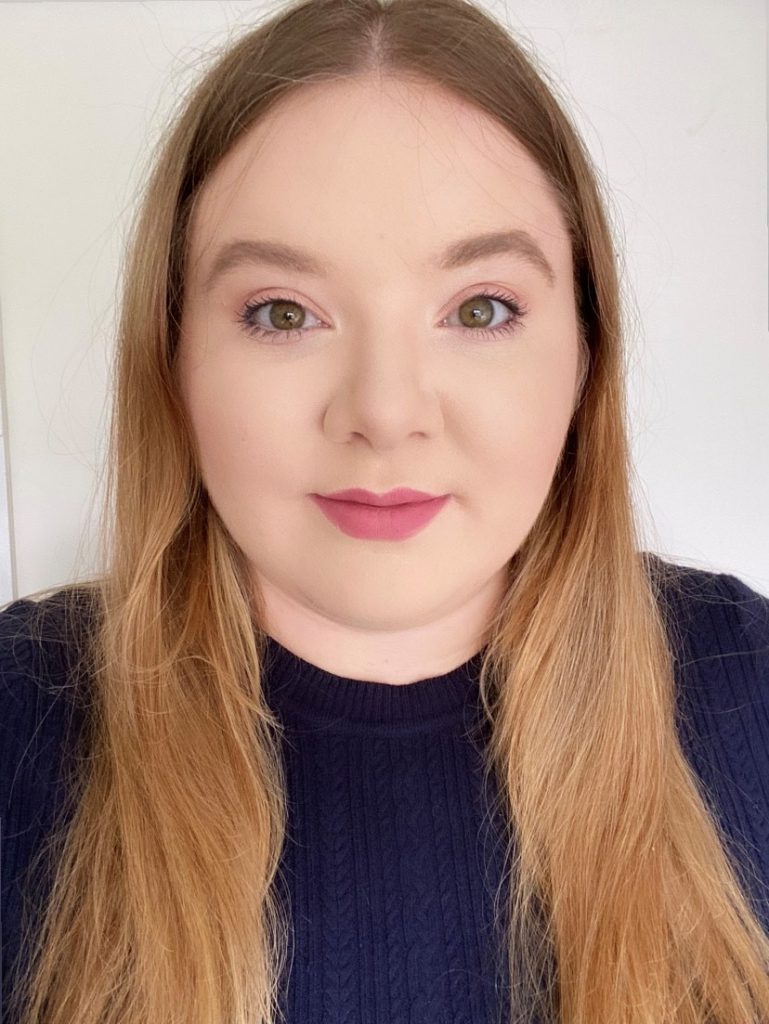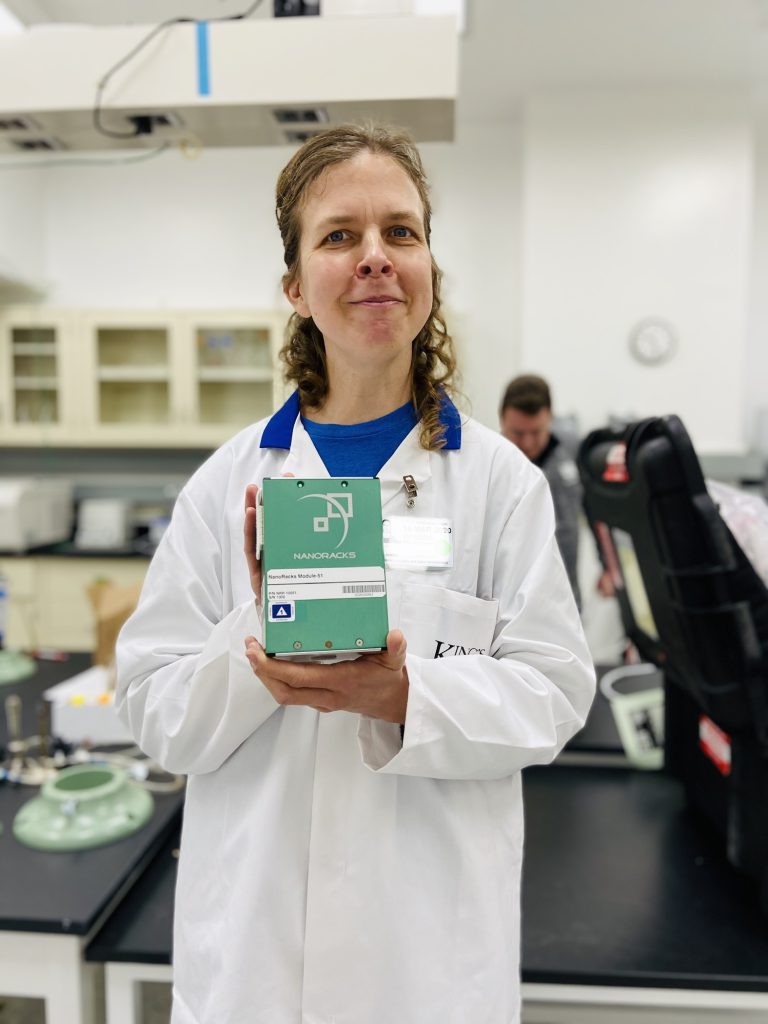Hannah Burgess, 3rd Year BSc Biomedical Science

My name is Hannah Burgess and I’m a third year BSc Biomedical Science student at King’s College London. The primary subject I have chosen to follow within my degree has been physiology (with a personal special interest in Space physiology) as I have always had a deep rooted passion for all things space and health.

During the summer break between my first and second year I was incredibly fortunate to mentor for the ISSET Mission Discovery programme at King’s, thanks to Dr Julie Keeble who is not only the organiser but also a senior lecturer in Pharmacology here. I spent the week supporting teams of students in designing their own biomedical science experiments to be launched to the International Space Station, and working alongside some exceptional students and faculty from the university as well as two astronauts – Michael Foale and Dominic “Tony” Antonelli.

I chose to select a final year project in physiology, and was beyond ecstatic when I discovered one of the projects we could bid for was “The development of a biomedical science experiment for launch to the International Space Station”. As chance would have it I was lucky enough to be one of two students selected for that very project, with the incredible Dr Julie Keeble as my dissertation supervisor.
I spent the first semester of my final year developing an experiment designed by the winning team of Mission Discovery at King’s College London in 2018, and was given the once in a lifetime opportunity by Dr Keeble to accompany her along with my lab partners to the Kennedy Space Centre. We spent a week in February at the Space Station Processing Facility (SSPF) building at the Kennedy Space Centre preparing our experiments and visiting some of the incredible buildings there (such as the famous Vehicle Assembly Building). We worked closely with an amazing team from Nanoracks packaging and handing over the total of 7 experiments ready for launch day.

Unfortunately due to launch being delayed and flight constraints Dr Keeble and my fellow students flew home prior to launch, however my partner and I had booked later return flights and so were very privileged to attend the launch on 6th March.
While my dissertation on the project is due at the end of this semester, I fully intend to continue supporting ISSET Mission Discovery and the development of the experiments after my graduation!
Who/what areas of research have inspired you at King’s?
Throughout my time at King’s College London, I have had the privilege of studying under and working alongside some incredible faculty and students.
My greatest academic passions were discovered in studying the Extreme Physiology module run by the compelling Dr James Clark and Professor Michael Shattock, learning about the limits of human physiology at the extremes including microgravity However, I consider myself to have been most inspired by the exceptional female role models across different STEM subjects. I count myself so lucky to have found such incredible friends in my fellow students who have consistently and unquestionably given me the confidence to follow my dreams no matter the adversity faced. My fellow mature students Samina and Lily studying the bioscience degree, as well as Maite and Anel whom I met through the Womxn in STEM society.
Dr Julie Keeble and Zoe Gaffen have been a huge inspiration and quite frankly have the coolest jobs in the world. Not only organising an exceptional outreach programme for school children at King’s College London to encourage them into STEM, but also developing and preparing science experiments for launch to the International Space Station. They inspire not only myself, but my fellow lab partners and hundreds of school students each year to believe that our dream careers in space research truly can be a reality.

Zoe is an endless fountain of knowledge with which my project would not have been the study it was without her. Dr Keeble provides incredible support in planning and development, and even one unfortunate night through an injury, and inspires me to pursue space research as a career and don some of the many hats that she does.
How has your learning experience at King’s helped you in developing your scientific passions?
The lecturers at King’s have pushed and challenged us in a number of ways throughout the bioscience degree. They have helped me to develop a problem-solving mind vital in the planning and development of research projects, shown us a broad spectrum of lab techniques and provided us the opportunity to focus on our scientific area of interest. I was encouraged to open my mind to topics and challenge any preconceived ideas I held, particularly in modules such as Animal Models of Disease and Injury which I recommend highly.
We have consistently been given the opportunity to learn from some of the foremost experts in research, conveying their passion into each lecture. The university gave me the opportunity and confidence to use my scientific passion to mentor school students and hopefully encourage the next generation of scientists into STEM degrees. The exceptional faculty at King’s have provided my fellow students and I opportunities I could only have dreamed of being possible a few years ago, and for that I am forever grateful.

What are your tips for anyone starting a bioscience degree at King’s?
- Surround yourself with people that inspire and encourage you, make sure you attend fresher networking events (especially if you’re a mature student!) where you’ll find some amazing friends for life.
- Keep your ear to the ground for opportunities and don’t be afraid to put yourself out there, you never know where they might take you!
- Areas of science aren’t exclusive, you can find ways to integrate your STEM passions, even physiology and space science!
- Get involved with student societies, particularly those in STEM and hobby areas. You’ll meet some amazing people and find some of the best opportunities.
- Most importantly! If things get hard, too much, if things go wrong, and you’re struggling – don’t hesitate to reach out for help. King’s and your fellow students are an amazing source of support and will get you through whatever you are facing, we’re all in this together.
